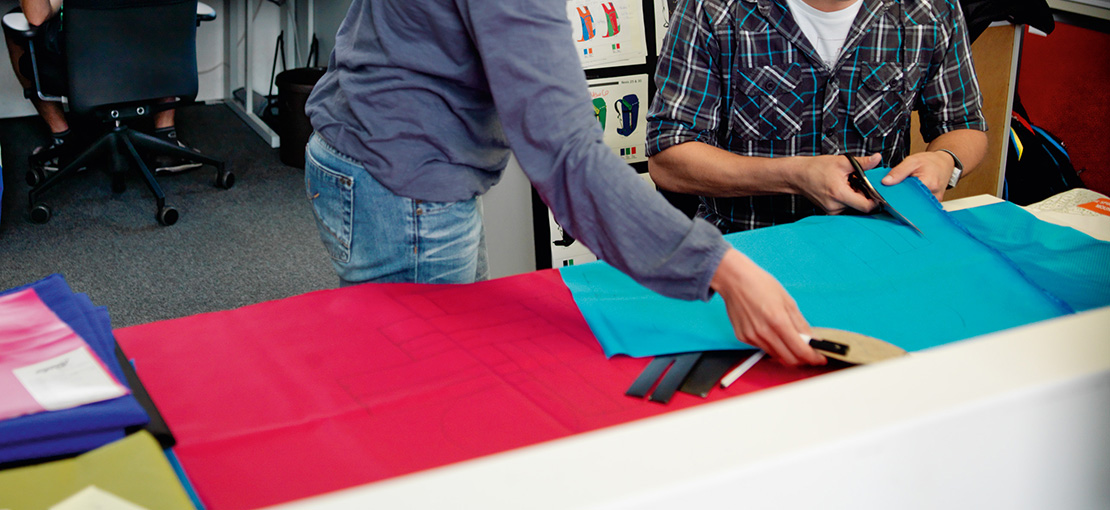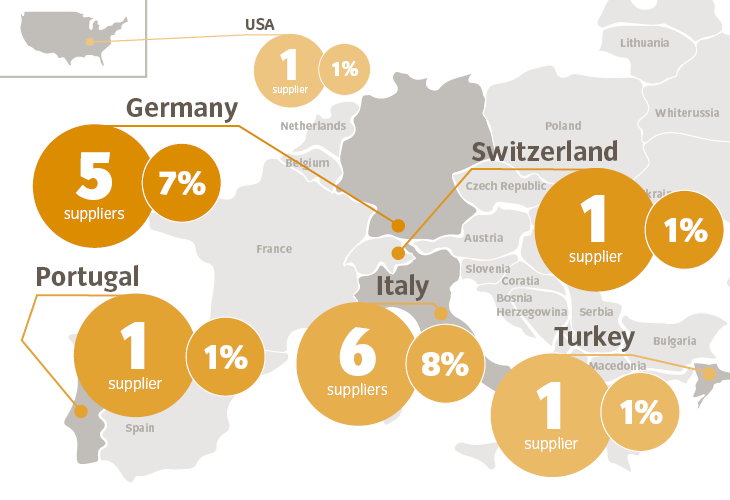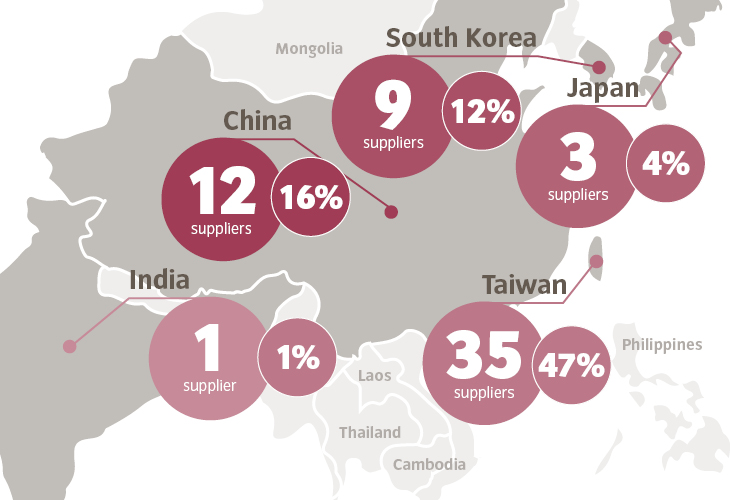
The best for your product: performance × responsibility
Performance meets Ecology
Your VAUDE products should offer reliable protection from heat and cold; wind, rain and the sun. They should help you to enjoy nature and achieve your best, and accompany you for years on your outdoor adventures.
We carefully select the materials for our products so that you get the best product for your activity. VAUDE materials combine top quality with technical performance and ecological responsibility.
Voluntarily, consistent, strict
The sustainability of your VAUDE product begins with our designers’ first product ideas. They are the ones who decide what materials and technologies to use.
Behind the scenes, VAUDE has made a commitment to using the best (most environmentally friendly) technologies, to eliminating the use of controversial technologies and materials, and to ensuring maximum traceability of all materials to their origin.
In the VAUDE Material Policy, we regulate which materials are allowed and which conditions need to be met during the production of raw materials, cultivation and processing.
Consistently strict also means that we ensure the greatest possible transparency for natural materials that could be critical from an environmental or animal welfare point of view. This means that we check very carefully where the wool, down and cotton come from, whether they meet the requirements defined in our Material Policy and are certified according to the standards we require. For example, we only use down that is certified by the Responsible Down Standard. You can find more info here.
Precautionary Principle: no unexpected surprises
While some competitors rely on nanotechnology or use materials made from genetically modified raw resources, we at VAUDE work in accordance with the precautionary principle: Until a technology is scientifically classified as harmless, we keep our hands off it.
In this process we include the opinions of experts from within and outside our industry such as the Federal Environment Agency, universities, and civil society organizations like the WWF Germany.
In our opinion, the industry has often brought alleged innovations to the market without adequately assessing the risks in advance. When it turns out that they are harmful to health or the environment, the damage has already been done. A current example: fluorocarbon technology for water-repellent materials. Why are they harmful and why did VAUDE stop using them? Find out more here.
A balancing act for product developers
The strict standards that we apply in our VAUDE Material Policy are also reflected in our Green Shape product philosophy - see Respect for people and nature.
This balancing act is a challenge for our product developers; more sustainable materials frequently cost more than their conventional counterparts, are more difficult to obtain, they require different processing or are used differently.
The VAUDE Material Policy is continuously being expanded and updated.
Your decisions count!
With your purchasing decisions, you can help to make your product more environmentally friendly:
- Water repellency without fluorochemistry: Choose a more environmentally friendly product - without compromising functionality! How does it work? Learn more here.
- If it’s got to be cotton, make it organic! This is much less damaging to the environment than conventional cotton, as less chemicals and less water are needed to grow it. Read more here: Organic cotton is better for people and the planet.
- Recycled materials reduce the use of raw materials, energy consumption and CO2, but not functionality! More at New fabrics from used fishing nets.
- Systematic is better: With the help of the bluesign® system, VAUDE reduces its use of raw materials, energy, water, wastewater, waste materials and chemicals in the processing of polyester and polyamide.
A clean supply chain and a clean conscience
We set standards for environmentally friendly products throughout the industry with the VAUDE Green Shape criteria. Other brands are welcome to join us!
Transparency throughout the supply chain is important, but it is often non-existent in textile production. Therefore we are working actively with the federal government’s Partnership for Sustainable Textiles as well as on the development of the Higg Index. This international databank is used to measure environmental and social aspects. Read more here.
Recycled materials reduce raw material, energy consumption and CO2, but not functionality!


We help our suppliers to work more environmentally friendly: With the Supply Chain Environmental Stewardship Program. Find out more here.
People and the planet go hand in hand: As a Fair Wear Foundation member with leader status, we ensure fair working conditions. More about it here.
| GRI: | 301-1 |
| GRI: | 301-2 |
| GRI: | 103 |




